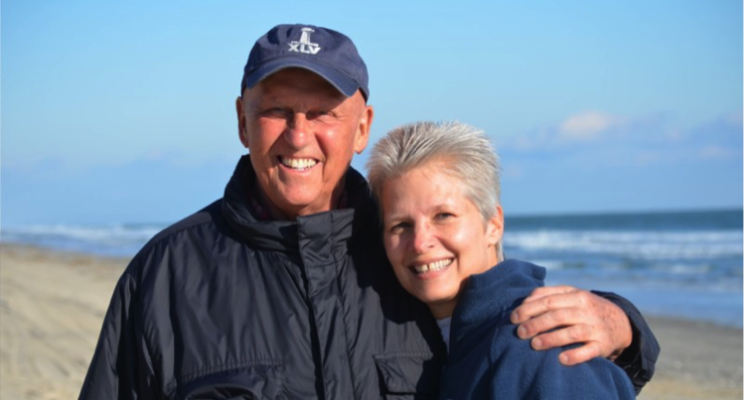How Losing My Husband Taught Me How to Be a Better CEO
By: Lorna Donatone

How Losing My Husband Taught Me How to be a Better CEO
Almost exactly five years ago I learned a leadership lesson I never wanted to learn. But as I look back on this anniversary and one that makes Valentine’s Day bittersweet, I appreciate that I grew personally and professionally in a way I might never have otherwise.
My husband died in January 2013. Steve had been diagnosed with Stage 4 pancreatic cancer only eight months before. The news came as a shock to me, my then 24-year-old daughter, my stepchildren and our larger community of family and friends.
I was also a CEO. I didn’t want to step down, but I had to immediately step back and help him deal with the diagnosis, understand the impact and create an action plan. I had to say ‘I have to retreat from my work life and it’s going to be okay.’
This was not a natural or comfortable place for me, as I think it’s not for many of us. But life had given me new orders.
A few things worked in my favor:
The people I worked with came together to support me so thoroughly that I knew they had my back. One of the first people who reached out was our head of Human Resources. That team sent me a binder to help me keep track of doctor visits, appointments and the rest. They helped me understand our coverage with insurance and lent their administrative support through the whole process.
My boss was flexible and allowed me to work when I could and be home for chemo treatments and other care responsibilities when I had to. My direct reports continually checked in and took many of my calls, meetings and travel demands.
After my husband’s death, many from Sodexo came to the funeral. Cards from all over our company came in, very personal, very impactful.
After the period when my family and I had to walk through the initial grief, I went back to work quickly. It’s how I healed. But I was different.
I was more understanding of the interplay between the personal and professional. I no longer saw life events as obstacles or as trials that could be compartmentalized. We all have ups and downs and we bring it all into the workplace, we can’t help it. More than ever, I understood – and now try to impart to others – that listening and supporting are part of what defines good leadership.
Another way to say it is that I learned to lead as a person first.
At work, I no longer ask, ‘How can we do this?’ But, ‘How do we get done what we need to get done in an environment where people feel supported and want to be here?’
I had always tried to empower my teams because my philosophy has been to lead the way I want to be led. It wasn’t until I faced this personal crisis that I understood the business case for having a knowledgeable, empowered team that can step in.
The experience also redoubled my support for flexible work arrangements. We have many career paths that enable virtual work and work during times of challenge.
I would never wish this learning process on anyone. It was terribly hard won. But I can say that encouraging a supportive atmosphere and listening to our teams reaps benefits not just during crisis, but day in and day out.
We all feel and do better when we know we’re not alone in our life or in our work.

